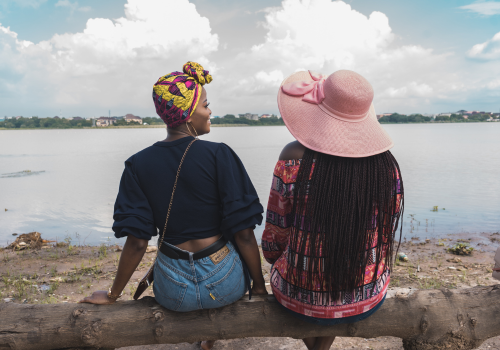When survivors find the courage to speak out, they deserve compassion, belief, and support. Yet too often, they face doubt, dismissal, and victim blaming.
One survivor shared:
“My husband, respected by many, shows a different face behind closed doors. His rage leaves me black and blue. When I finally spoke up, no one asked how I was coping or how they could help. Instead, I was told: ‘He’s just being a man, you have to be patient.’ ‘Are you sure you’re not provoking him?’ ‘What happens behind closed doors must stay there.’”
These responses don’t just hurt; they cause deeper harm. Victim blaming shifts responsibility away from the abuser and onto the survivor, increasing trauma and isolation.
What Is Victim Blaming?
Victim blaming means holding survivors responsible for the abuse. Whether blatant or subtle, its impact is devastating:
- Survivors internalise shame and guilt, believing they caused the violence.
- Perpetrators feel justified and continue abusing.
- Communities stay silent, stigma grows, and trust in authorities fades.
For Black, Asian, and minority ethnic survivors, victim blaming is intensified by cultural expectations, systemic racism, and institutional bias.
Why Does Victim Blaming Persist?
Key drivers include:
- Cultural norms: Protecting family honour or male authority often trumps survivor safety.
- Denial: Many convince themselves “it wouldn’t happen to me.”
- Institutional failures: Police, courts, and social services sometimes minimise abuse or reinforce harmful myths.
This causes survivors to withdraw, distrust support, and suffer untreated mental health issues, especially in communities where seeking help is stigmatised.
The Impact on Black Survivors
Victim blaming affects Black survivors deeply:
- Cultural pressure to protect reputation and faith discourages disclosure.
- Systemic racism leads to disbelief or dismissal by authorities, 73% of rape survivors report mental health harm from police treatment.
- Courts often use victim-blaming language, resulting in lighter sentences for offenders.
This leaves Black survivors less likely to report abuse and more likely to stay in danger.

We are part of the Hope and Light programme, providing mental health support to the Black African, Black Caribbean, Central and Eastern European, and South Asian communities recognising the diversity within and beyond these groups through a range of culturally responsive services.
We put you at the heart of what we do. By listening to your experiences and respecting your values, we aim to address mental health challenges in ways that you can relate to and meet your unique needs. We’re here to find ways to address mental health challenges that respect your culture, value your input, and are designed specifically with your needs in mind.
Through activities such as group and one to one support, we create safe spaces in your community to help you access the right care.
Lives Lost to Victim Blaming
Valerie Forde (2014): Police minimised threats she reported, and she and her toddler were murdered weeks later. Her case led to Valerie’s Law, requiring cultural awareness training for workers supporting Black women.
Surjit Athwal (1998): Killed in an honour-based attack after seeking freedom from abuse. Her community’s obsession with “honour” cost her life and exposed the deadly cost of victim blaming.
Why This Matters for Black History Month
Black History Month celebrates resilience and calls out injustice. Victim blaming is systemic, silencing Black survivors and protecting abusers.
To end it, we need:
- Culturally informed, trauma-informed services.
- Intersectional approaches recognising race, gender, immigration, and class.
- Accountability placed on perpetrators.
- Community campaigns to break stigma and amplify survivor voices.
Moving Forward: Support Survivors, Stop Victim Blaming
When survivors hear, “What did you do to provoke him?” instead of “How can we help you?”, abuse continues unchecked.
This Black History Month, we honour survivors by committing to end victim blaming.
Survivors deserve safety and trust. At Staying Put, we are here to listen, believe, and take action to protect them today and always.
We will help
If you are experiencing domestic abuse or sexual violence we will help. Call us on
0808 2800 999
Open Monday – Friday 9.30am – 4.30pm (Closed for half an hour at lunch at 1pm)
Our One Front Door helpline is completely free and confidential, and the call will not show up on itemised bills.


